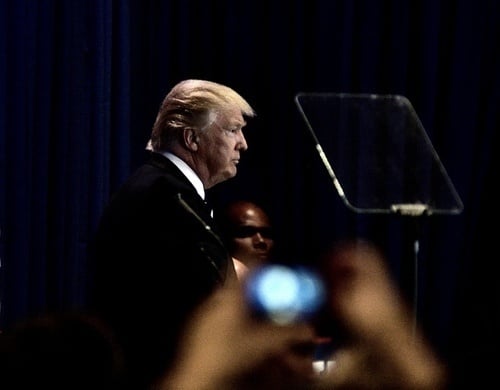One of President Donald Trump’s first actions was to freeze a planned cut to FHA premiums. Industry groups weren’t happy – but will the decision really affect originators’ bottom line?

One of President Obama’s last actions before leaving office was to institute a cut on mortgage insurance premiums (MIP) for FHA-backed loans – and one of President Trump’s first actions, upon taking office, was to freeze that cut.
That didn’t sit well with many in the industry. But what’s the real effect on homebuyers – and, by extension, loan originators? Well, not much, according to one industry expert.
“FHA loans are a big piece of the business, and the main reason to do an FHA loan hasn’t changed,” Tim Beyers, a mortgage analyst at American Financing, told MPA. “The act of lowering the rate a little bit would save the homeowner a bit – the common number is about $500 a year. So there may be some reticence among some buyers because of that.”
But overall, Beyers said, the freeze hasn’t particularly cut into American Financing’s business.
“We’re still writing FHA loans,” he said. “We don’t have a big concern about what impact this would have on the potential FHA homebuyer. Having said that, if you want to talk about practical impact, I think there’s some good news for originators.”
That news, Beyers said, is that the Trump administration hasn’t actually said “no” to the cut – it’s said, “Not yet.”
Almost everyone observing this is thinking that the administration is waiting to see,” Beyers said. “It’s pretty clear that they haven’t said, ‘Absolutely not.’ There’s been no harsh rhetoric from the Trump administration saying this was a terrible option. So it’s possible that (the MIP) will still go down.”
In fact, fluctuations in the MIP are hardly uncommon. FHA mortgage insurance premiums have been raised or lowered six times since 2010.
“But it doesn’t mean anything for refinances, for people going into a second home,” Beyers said. “The portion of the market this impacts are younger, lower-income – the portion of the market buying a first home.”
And for the portion of the market it does impact, FHA loans remain a strong option, Beyers said.
“The main FHA product, and the ability to put down 3.5% -- especially if you’re in an expensive market – is a wonderful option. It continues to be the best option for many, especially if you’re a first-time home buyer,” he said. “The real story for the first-time homebuyer is that the FHA product is solid. These little moves here and there – if you’re an originator, those little fluctuations are something you have to get your buyers used to. The FHA product has real advantages – and mortgage insurance is a small price to pay when you’re getting into the home you want.”



